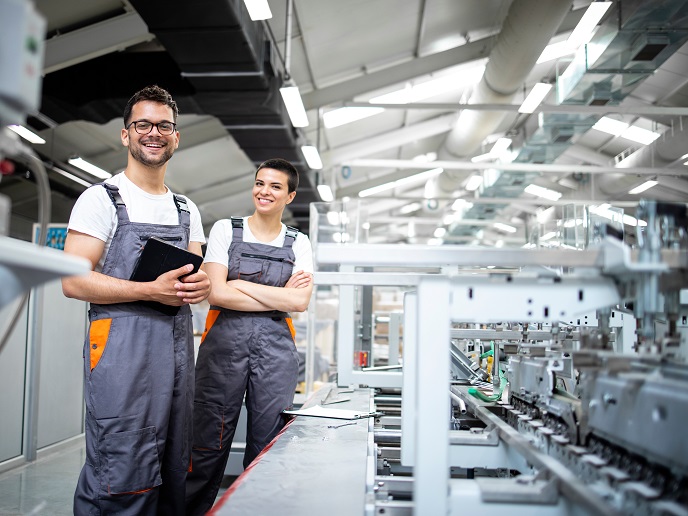Human-centric manufacturing: How new approaches to technology design can transform European industry
From the Model T to the iPhone, mass production defined the 20th century. The economic benefits of scale, standardisation and the assembly line made products affordable and available. But industrial manufacturing also brought its own challenges: inflexible production, a one-size-fits-all consumer model, and workers too often tasked with repetitive, low-skilled and low-paid work. In its Industry 5.0 concept, the European Commission offers a replacement: an approach that yields advantages for industry, workers, and society at large. It empowers workers, addressing their evolving skills and training requirements. It enhances industry competitiveness and facilitates the attraction of top talent. And it promotes circular production models and technologies that enhance the efficiency of natural resource utilisation. By revising existing value chains and energy-intensive consumption practices, industries can also enhance their resilience against external shocks. Through Horizon 2020 and its successor Horizon Europe, the EU funds groundbreaking research to support the transition from traditional structured factory floors to open environments with smart systems, where humans are central to the production process chains and can closely collaborate with robots. Collaborative technologies, including human-robot collaborations with AI and customer-driven manufacturing, represent an important step towards complementing human capabilities. These have great potential in the European manufacturing industry, playing a significant role in the transition towards Industry 5.0.
People-centred technology
EU-funded research aims to secure effective industrial human-robot collaboration through novel human-centred design and smart mechatronic systems. This includes soft robotics, advanced machines capable of handling complex materials in industrial production environments, and novel artificial intelligence technologies that enable new levels of autonomy, navigation, and cognitive perception by factory robots. Collaborating with customers to better understand their needs also represents an important step towards a more resilient and sustainable European industry. Research supporting customer-driven manufacturing can lead to more efficient and productive manufacturing processes via innovative instruments such as collaborative Manufacturing Demonstration Facilities. Advanced AI systems, customer-integrated manufacturing, and collaborative robotics are all technological challenges implemented by the Horizon 2020 European Partnership Factories of the Future, a EUR 1.15 billion public-private partnership for advanced manufacturing research and innovation. The partnership continues under Horizon Europe, as Made in Europe (MiE). The projects featured in this Result Pack highlight examples of human-robot collaboration and customer-driven manufacturing that are already giving rise to safer and more skilled roles for those working in manufacturing, better economics for the industry, and a production tailored to the needs of citizens in the 21st century. The projects in this Pack contribute to the advance of Industry 5.0 in a variety of ways. To bring the customer into the design process, DIY4U, iPRODUCE, OPEN!NEXT and INEDIT built tools to allow collaboration with manufacturers of detergent, furniture and more. Meanwhile, projects including TEACHING, SHERLOCK, SHAREWORK and STAR developed more advanced, perceptive and reliable robots that could work more safely alongside humans, while SOFTMANBOT and REMODEL designed high-dexterity machines that can perform complex tasks on the assembly line.



